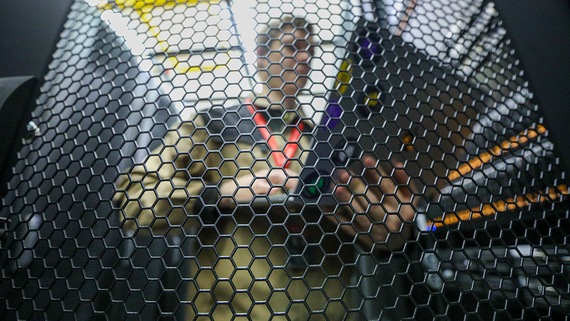Mintsifra and FCS plan to close access to electronics import data
[ad_1]

The Ministry of Digital Development and the Federal Customs Service may close access to customs data on importers and imported goods for departments and companies due to fear of new sanctions. We are talking primarily about the import of computer technology, that is, computers, laptops, etc., and microelectronics. Measures to protect data, the source of which is the FCS databases, were discussed on April 20, 2023 at an interdepartmental meeting with the participation of the Minister of Digital Development of Russia Maksut Shadayev, Acting Head of the FCS Ruslan Davydov, as well as members of the Association of Computer and Information Technology Enterprises (APKIT). This was reported to Vedomosti by two participants in the meeting.
As a result of the meeting, it was decided that the FCS, together with the Ministry of Digital Transformation, would prepare a number of proposals for measures aimed at closing the availability of data in customs databases in order to minimize the risks of their leaks, one of Vedomosti’s sources said. Distributors have needed to close data on the equipment they import into the Russian Federation and import chains due to the fact that the disclosure of supply routes creates high risks of sanctions against companies, Vedomosti’s interlocutor in government agencies added.
Until January 2022, the data on imports and exports of the Federal Customs Service were open and published on the website of the department. In February, the head of the FCS, Vladimir Bulavin, said that he supported the decision not to publish statistics on imports and exports. According to Bulavin, the department took such a step “in order to avoid incorrect estimates, speculation and discrepancies in terms of import deliveries.” Then he emphasized that the measure was temporary.
On March 13, 2023, the Federal Customs Service of Russia partially resumed the publication of customs statistics, Vedomosti reported. In particular, foreign trade turnover for 2022 grew by 8.1% year-on-year and amounted to $850.5 billion. Exports increased by 19.9%, while imports decreased by 11.7%, to $591.5 billion and $259 billion. billion, respectively.
And on April 18, 2023, at the First Russian Data Forum, Shadayev called for removing departmental data from public access. “Our position is as follows: many data must be accurately removed from the operational circuit, stored in encrypted form, access to them must be restricted, they definitely should not be in such basic availability, which we have been talking about lately,” said Shadayev.
Shadayev did not specify in his speech which departments were discussed. The mechanism for accessing hidden data is explained as follows: all sensitive data will be stored on the server in encrypted form and provided only upon request within the framework of SMEV (interagency electronic interaction system). That is, they will not be in open form on the server – this, in theory, should minimize the risk of confidential data leaks.
Ivan Begtin, director of ANO Infokultura, told Vedomosti that the data is being closed to protect the channels for the supply of goods to Russia through the mechanism of parallel (“gray”) imports. Using such data, analysts can track the countries through which goods are imported into the Russian Federation, which entails the risk of secondary sanctions for companies and counterparties. Ordinary users will not be affected by the changes, Begtin emphasizes: “For them, the data has already been closed.” FCS data will be available only to individuals and organizations from the so-called “white list”, which is determined by the government, he suggests.
The statistics collected by the customs authorities reflect how foreign trade reacts, including to sanctions, which really creates certain risks for new supply chains that allow these very sanctions to be circumvented, Ilya Zharsky, managing partner of the Veta expert group, agrees. Now, according to him, there are talks on the world political arena “regarding the further tightening of restrictive measures related to foreign trade, up to the transition to the rule “what is not allowed is prohibited””. “So you can understand why there is a discussion about further reducing the volume of publicly available information on foreign trade,” the expert adds.
The Association of Developers and Manufacturers of Electronics (ARPE) earlier for its part also offered to block access to information on the import of components and certain types of computer equipment, said the executive director of the association Ivan Pokrovsky. These data compromise both suppliers and Russian customers, he explains. The FCS has a closed declaration mode that ensures the protection of information, but other bodies, in particular the Federal Tax Service, lose access to data in this mode, warns Pokrovsky. That is, this regime may interfere with the work of other public services, he said.
Parallel import deliveries make it possible to hide the final recipients of sub-sanctioned goods from foreign regulators, Kira Vinokurova, special adviser on sanctions issues at Pen & Paper, explained. When certain goods are produced in a small number of countries, serious operational and analytical work is not required to determine which goods of which production were introduced into circulation in Russia, she continued. The high growth of Russia’s trade with other foreign countries, in turn, shows the potential jurisdiction through which such a supply is carried out, the lawyer added.
Vedomosti sent inquiries to the Ministry of Digital Transformation and the Federal Customs Service.
[ad_2]
Source link








